|
The ideology of Sarvodaya is embedded in the Gandhian conception of an ideal social order as described by Ganguli who devoted his post-retirement phase, his time and energy to study Gandhian social philosophy. Based on this scholarly study he has written Gandhian Vision of an Ideal Social Order. I draw hereafter substantially from his work mostly in his own language.
A great Social Scientist of international repute and a committed professional social worker Left for Heavenly Abode! The day of 15th January, 2013 is a dark day for the professional social workers in particular and for the social scientist in general. It is on this day that Dr. Gokhale left for heavenly abode. He was born on 21st of September, 1925 and lived about 88 years.
Dr. Sharadchandra Gokhale was basically a trained professional social worker and alumni of Tata Institute of Social Sciences, Mumbai. He was an eminent social scientist of international repute. He has worked in the field of social development. His contribution to the field of child welfare, leprosy, ageing and policy are of significant nature. He had also worked as an editor of the news papers, writer and researcher. A colleague and a good friend
Dr. K.V.Sridharan, whom I used to call Shree, was a conversationalist, non-conventionalist and a person with great untapped potential. Born to a school teacher of Mangalore origin he had his early education in Kodungalloor, Kerala, where they lived since their forefathers migrated along with several Konkani Brahmins during the invasion by Tippu Sultan of Mysore. For his Intermediate studies he moved to Palghat. Thereafter he came over to Madres and joined the Presidency College for B A Hons in Economics. After graduation he joined the Tata Institute of Social Sciences, Bombay, for Professional Social Work Training and completed the training in June 1953, with specialization in Labour Welfare and Personnel Management. He was also Director, Field Work for four years and Founder -Director of Child Guidance Center- a Field Action Project
Excerpts from the interview with Prof Pathak Hemalatha: How important are Field Action Projects (FAPs) to become a criterion for quality assessment of education in social work Prof, Pathak: It is quite a difficult question. Without field work there cannot be social work education. If you search the meaning for 'Social' in any Dictionary, you may find various words, especially you will get the word 'Society'. In its widest sense 'anything that you do in society can be considered as social, However, there is a restricted meaning which is used when we refer to social work. Coming to FAPs, it may become necessary if there are no good agencies in an adequate number to place and train students. Good agencies may also not be available to students for field work placement for a variety of reasons. FAPs become necessary then. Shankar Pathak is a retired Professor of Social Work, Delhi University. He studied at Karnatak and Lucknow universities with Economics as a major subject, and also political science, sociology and social anthropology. He obtained the post-graduate diploma in social work at the Tata Institute of Social Sciences and M.A at the Indiana University U.S.A. He has widely read in social sciences and social work and uses this knowledge in all his writings. He has authored eight books (Seven plus 1 revised edition for NBT) and contributed articles to the Encyclopedia of Social Work in India (1966 and 1987) and to several anthologies on social work. He is a founder member of I.AT.S.W, its first President of the Delhi Branch and Editor of its quarterly journal – Social Work Forum (1969-71). He was U.N.ECAFE (now ESCAP) Senior Lecturer at the Philippines School of Social Work. Manila and the International Association of Schools of Social Work Consultant on Family Planning, at the Faculty of Social Administration, Thammasat University, Bangkok during 1973-74.
An exceptionally self-effacing social worker who shuns publicity despite his phenomenal services to the elderly in India. He is my mentor Prof. T.K. Nair. He pioneered services for the betterment of the life of India's aged, but remains incognito without seeking any recognition of his work. At a time when the only form of service for the aged in the country was old age homes, he initiated community-based elder care services like day centres, self employment through skill upgradation, family counselling, geriatric social work in hospitals, domiciliary health care, etc.For this purpose he founded the Centre for the Welfare of the Aged (CEWA) in 1979, when I was not even born. The newly established Helpage India in 1978 extended funding support.
We make decisions every day, large and small, some of which have life altering consequences. Yet our choices are not irrelevant. The question always has been: how can we discern the course to be run? The values of family, friends and mentors and Faith point us to the realisation that what matters most in life is all wrapped up in people.
The ability to look beyond our disappointments is essential for our life and living. The way we discern our course of action - irrespective of the area of our vocation - can leave a deep imprint in the minds of some people and in the hearts of most people. The way I perceived, understood, practiced, taught and conceptualised social work revolves around this life changing choices. The lesson from my parents has always been ‘get involved where ever you are and in whatever condition you may enter into’. “Shree” (as the Late Dr.K.V.Sridharan was fondly called by people close to him) was an excellent motivator and facilitator of learning rather than a Professor. When PhD degree holders were scarce in Indian schools of social work, he pursued his doctoral research in social work in a prestigious university in the United States. He was a rare person who chose to work in India at a time when the educated Indians preferred to migrate to America. He consciously preferred a spartan life to a life of luxury and comfort for which he had many opportunities. He was Director of the Madras School of Social Work for a brief period. Many young social workers were benefited to go to USA for training under the Cleveland International Programme for Social Workers and Young Leaders during his tenure in the United States Education Foundation in India. He never compromised his convictions. As Director of the National Institute of Social Sciences at Bangalore, he had to face the toughest challenge of his life when he had to dare the most powerful Chief Minister of Karnataka and the management of NISS to protect the autonomy of the Institute and the interests of the students.
I am happy to learn that Samaja Karyada Hejjegalu is bringing out a special issue on late Dr.K.V.Sridharan, known to his friends as Shri.
I met him in Bangalore around 1975 when I was on a rescue mission to the National Institute of Social Sciences which was in serious doldrums. There was a conflict between the management and the director, Dr.Sridharan. He gave up a prestigious and lucrative job in New Delhi and took over the post of director of the NISW, a relatively unknown outfit. He was the director of the Viswayuvak Kendra earlier. Dr.Sridharan was removed from his post of director, NISS unceremoniously. He appealed to the Association of Schools of Social Work in India (ASSWI) for intervention on his behalf. Social work educators and practitioners felt outraged at the ill treatment meted out to Dr.Sridharan. A fact finding committee was constituted by the ASSWI (K.N.George, Madras School of Social work was the president) with Fr.Sales of the Rajagiri college and myself to inquire into the complaint against the NISS and to recommend remedial measures. We made out a strongly worded report and the rest is history. Subsequent events following our report did not set right the wrongs suffered by Dr.Sridharan. He was not absorbed into the faculty of the department of social work, Bangalore University. Of course the loser is the University for not having him on the faculty along with other staff members of the NISS. From then on Shri was a freelance educator and trainer along with his wife, Dr.Uma whom he married later on in life. Dr K.V. Sreedharan was born in Crangnore (Kannanur) North Malabar District of the Madras province – as it was known before Independence. His father was a high-school teacher, popularly known as “Pai Master”. After his high-school education Sreedharan studied at Madras and obtained an M.A degree in economics with first class. Several years later he also got the M.Litt degree of Madras University. Dr Sreedharan passed out of the Tata Institute of Social Sciences in 1953, with the Diploma in Social Service Administration, specializing in Labour Welfare and Personnel Management. He joined as lecturer at the newly started Madras school of Social Work and for a brief period was its acting Director. He got ful bright Fellowship to do PhD in Social Work at the Cleveland University, Ohio, U.S.A and obtained his PhD degree in 1960. He searched for a suitable senior position in schools of social work. Not succeeding in this, he joined the United States Educational Foundation in India, as a co-ordinator of Cleveland International Youth Leadership Programme. While in Delhi, in 1963 he became the first editor of Social Work Forum, the quarterly journal of Indian Association of Trained Social Workers. He held that position for about four years, until he left for Bangalore to become the Director, National Institute of Social Sciences (Refer, Feb.2011. Social Work Foot Prints). Later he was Director, Nehru Yuwak Kendra in New Delhi for two years. He was also the Editor of Social Work Educator, quarterly journal of the Association of Schools of Social Work in India, for about two years.
Mrs Mary Clubwala Jadhav was a legendary social worker who was awarded the Padma Shri and Padma Vibhushan for her outstanding humanitarian service. Settled in Madras, Mary Clubwala, a Parsi by birth, was keen to start a school of social work in Madras on the lines of the Sir Dorabji Tata Graduate School of Social Work at Bombay (later renamed the Tata Institute of Social Sciences). Thus the MSSW came into being on 5 August, 1952 and it was housed in thatched sheds in the Harrington Road area and offered the two-year Diploma in Social Service Administration (DipSSA).
Prof. H.M. Marulasiddaiah
Prof. H.M. Marulasiddaiah(HMM) completed MA (Sociology) from Mysore University and MA (Social Work) from the Delhi School of Social Work. He was awarded PhD in Social Work by the Kashi Vidyapeeth in 1978. His teaching career started as Lecturer in social work at the PSG School of Social Work in Coimbatore. It was in 1958. In the year 1962, HMM joined as Lecturer in Social Work of the newly created social work wing of the department of Social Anthropology at Karnataka University. Professor Ishwaran, the head of the department, contrary to his name, was an autocrat. His authoritarianism stifled the development of the social work unit of the department as well as the growth of HMM academically. Kashi Vidyapith
It was in June, 1958 when I had got admission to M.A Geography at the Banaras Hindu University. Soon thereafter due to continuing agitation of students and teachers, BHU was closed sine die. Admission to Social Work (Master of Applied Sociology–MAS) was still going on. My elder brother knew about the short-term training programme at the Kashi Vidyapith to prepare Labour Welfare Officers under the Factories Act 1948, and also the MAS programme for 2 years under the Institute of Social Sciences, Kashi Vidyapith. He asked me to apply to the 2 – year programme “to kill time” and subsequently to get a job as Labour Welfare Officer somewhere. Graduates from the Kashi Vidyapith used to get jobs either in the Factories, Mines, Prisons or Welfare Departments. Thus what started as “killing of two years’ time” became a lifelong pursuit and commitment to social work education–a shift from geography to society and social welfare. |
Categories
All
Social Work Learning Academy50,000 HR PROFESSIONALS ARE CONNECTED THROUGH OUR NIRATHANKA HR GROUPS.
YOU CAN ALSO JOIN AND PARTICIPATE IN OUR GROUP DISCUSSIONS. MHR LEARNING ACADEMYGet it on Google Play store
|
SITE MAP
SiteTRAININGJOB |
HR SERVICESOTHER SERVICESnIRATHANKA CITIZENS CONNECT |
NIRATHANKAPOSHOUR OTHER WEBSITESSubscribe |
MHR LEARNING ACADEMY
50,000 HR AND SOCIAL WORK PROFESSIONALS ARE CONNECTED THROUGH OUR NIRATHANKA HR GROUPS.
YOU CAN ALSO JOIN AND PARTICIPATE IN OUR GROUP DISCUSSIONS.
YOU CAN ALSO JOIN AND PARTICIPATE IN OUR GROUP DISCUSSIONS.
|
|

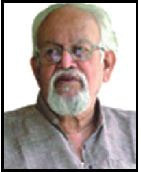
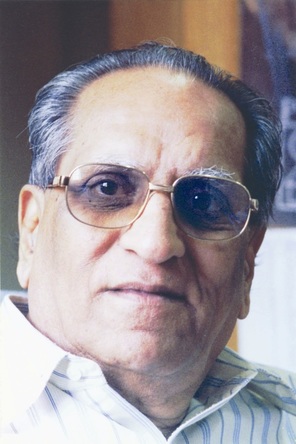
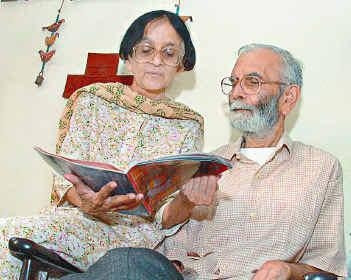
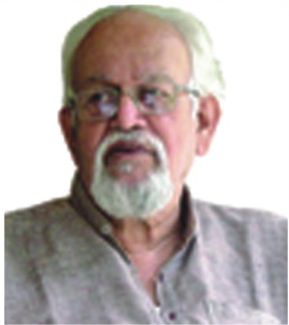
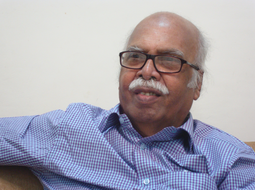
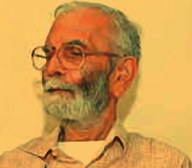
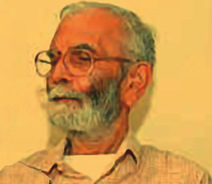
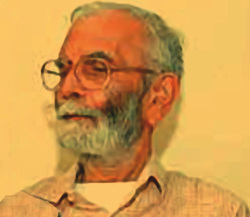
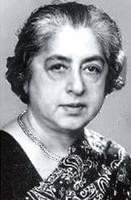





 RSS Feed
RSS Feed





